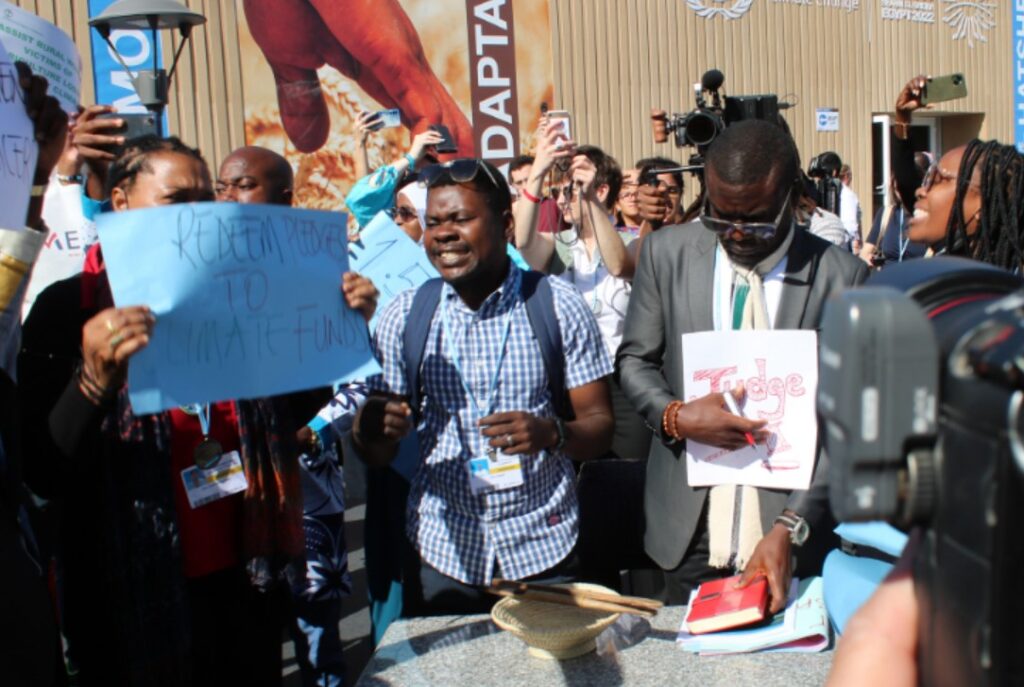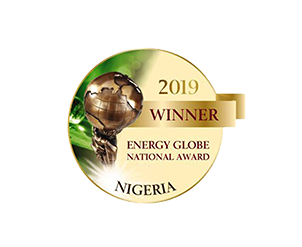
WERE OUR EXPECTATIONS MET?: REFLECTING ON THE OUTCOME OF COP27
From 6-18 November 2022, Women Environmental Programme’s (WEP’s) team was in Sham El Sheikh, Egypt for the 27th session of the Conference of Parties (COP27) to the United Nations Framework Convention on Climate Change (UNFCCC).
With a team comprising of members representing different Africa countries: Nigeria, Togo, Niger, and Tunisia, we had different expectations from COP27 for our countries, but most importantly, we all had collective expectations from COP27 for Africa.
Top of our expectations was the establishment of a funding facility for losses and damages associated with the impacts of climate change on vulnerable regions. Women and Gender Constituency and the African Feminist Task Force were our allies to advocate for these expectations through side events, protests, press conferences, and informal meetings with negotiators.
At the end of the two-week long conference, decisions were reached but we would not have all that we expected. But we were glad that COP27 established a funding facility for loss and damage after decades of advocacy for it. As one of the COP27 participants remarked, “It worth noting that we have the fund, but we need money to make it worthwhile. What we have is an empty bucket. Now we need to fill it so that support can flow to the most impacted people suffering right now at the hands of the climate crisis.” We expect commitments to this fund from developed countries even as the Transitional Committee on the operationalization of the fund works out modalities to be adopted at COP28.
Our expectation on Gender and Climate Change negotiation item was not met as expected. We expected from the negotiation finance made available for National Gender Focal Points for the implementation of Gender Action Plans and enhanced capacity building and involvement of more women in global, regional and national climate change processes.
Just like many analyst, we express fears if the decisions reached at COP27 are capable of meeting the long term goal of the Paris Agreement of lowering global average temperature. COP27 concentrated more on addressing the symptoms (impacts) rather than causes (commitment to reduce emissions from fossil fuels). This means that even with the establishment of the loss and damage fund and when it becomes operational, vulnerable regions and populations such as women and people with disabilities will continue to experience severe climate change impacts as emission-reduction commitments remain low.
It is important to observe that while Africa hosted the world on its vulnerable continent, it could not express loudly how it has suffered severe damages and losses from the climate change crisis as the space for doing that by the civil society and the women groups was shrunk. The civil society space was further shrunk by the Egypt government with restrictions that affected protests on the streets of Sharm El Sheik by Africans to show how deep are the impacts of climate change on the continent.
Our participation at #COP27 was supported by Christian Aid, WECF International, and Climate Action Africa project funded by Global Affairs Canada and implemented by Alinea International, Econoler, and WSP.


